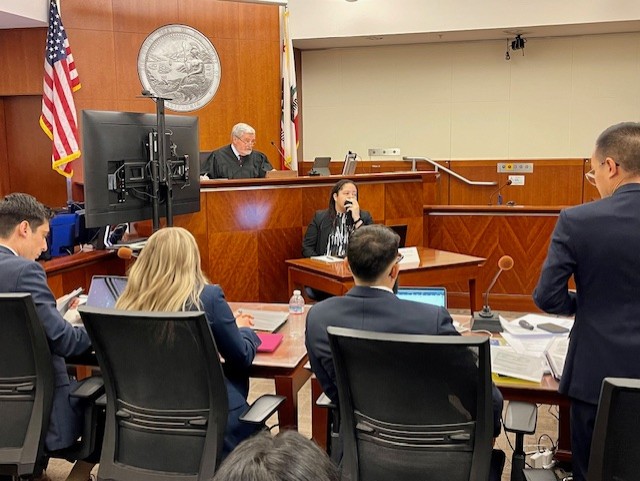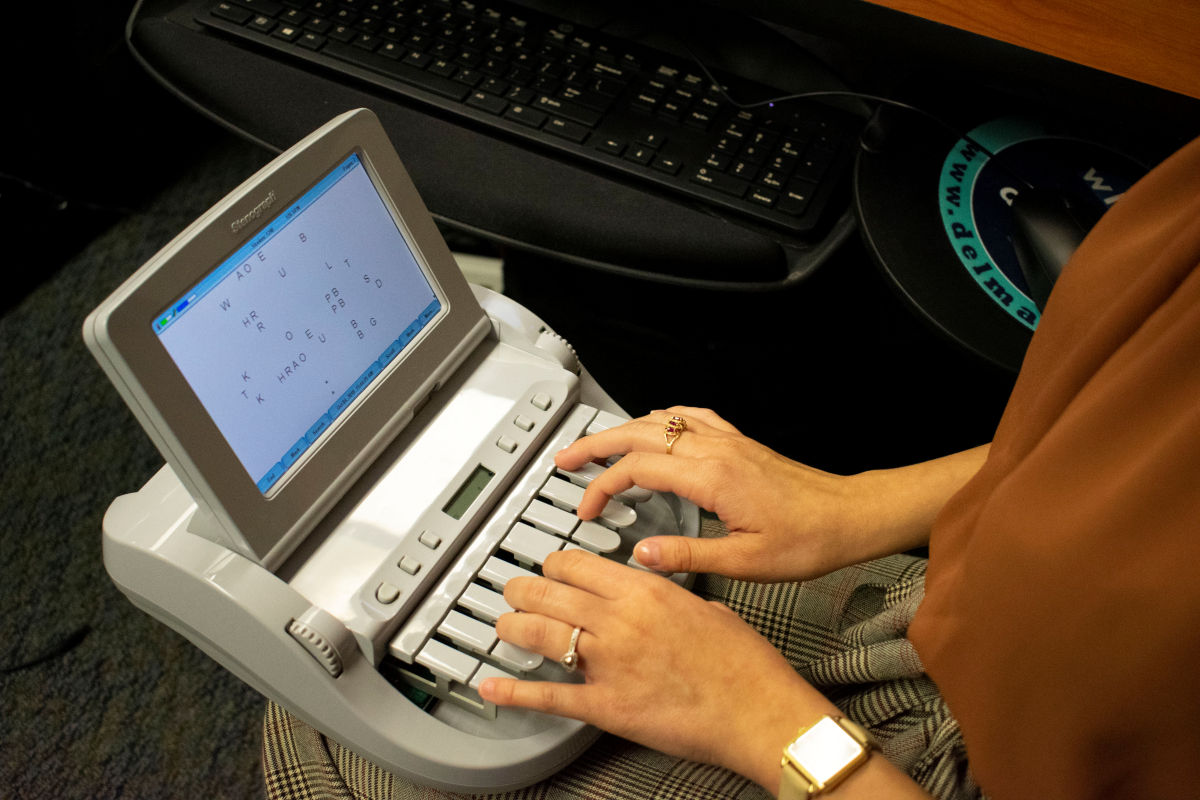Why modern court reporting Is Critical to a Fair Trial
Wiki Article
Comprehending the Necessary Function of Court Reporting in Legal Process
Court coverage is usually forgotten, yet it's essential in lawful proceedings. Allow's discover the fundamental functions of court reporting and its value in the legal landscape.The History of Court Reporting
Court reporting has an abundant history that goes back to old civilizations, where scribes made use of various approaches to capture talked words. The earliest kinds of shorthand emerged in Greece around 400 BC, enabling thinkers and politicians to tape speeches rapidly. As you move through history, you'll discover that the Romans adopted similar techniques, fine-tuning them to document lawful proceedings. By the 16th century, modern shorthand systems began to form, allowing court reporters to produce accurate records successfully.In the 19th century, the invention of the typewriter changed the career, making it simpler to develop readable documents. The introduction of steno equipments in the 20th century further advanced court reporting, enabling real-time transcription throughout tests. Today, court reporters play a substantial duty in legal procedures, making certain that every word talked in the court is precisely recorded. Recognizing this history highlights the value of court reporting in maintaining a reasonable lawful system.
The Skills Required for Court Reporters
As a stenotype reporter, you require strong keying abilities to stay on par with the fast-paced discussion of lawful proceedings. Your capacity to pay attention attentively is just as essential, guaranteeing every word is caught properly. Understanding these abilities is vital to providing precise and trusted transcripts.Proficient Typing Capabilities

Solid Paying Attention Abilities
Solid paying attention abilities are vital for court reporters, as they must accurately catch talked words in actual time. You need to focus intently on the dialogue, getting subtleties, tone, and context to guarantee every detail is recorded appropriately. This skill helps you distinguish in between speakers, understand legal jargon, and follow intricate discussions. It's not nearly listening to words; it's concerning comprehending and analyzing them swiftly. You'll often face various accents and speech patterns, so flexibility is vital. Practicing active paying attention methods can boost your abilities; for example, summarizing what you have actually heard after conversations can reinforce your skills. Ultimately, solid paying attention skills make you an important property in lawful process, ensuring clarity and precision in the court record.The Innovation Behind Court Coverage
In the domain name of lawful proceedings, innovation plays a necessary duty in improving the precision and effectiveness of court coverage. You're likely accustomed to the typical stenotype equipment, however modern-day stenotype reporter currently use advanced software that integrates with these makers, allowing real-time transcription. This implies you can have instant accessibility to the records as the proceedings unfold.Digital audio recording is one more technical development that's getting grip. It catches every talked word, guaranteeing absolutely nothing is missed. Some press reporters make use of voice recognition software, which can help improve the transcription process, though it still needs human oversight for precision.
Furthermore, cloud-based storage space permits very easy accessibility and sharing of records, enhancing cooperation among lawful groups. By leveraging these technologies, court press reporters can supply high-grade, prompt documents that are important for the lawful process. Embracing this technology not just boosts your understanding but also guarantees reliability in lawful documentation.
The Court Coverage Process

As legal process unfold, the court reporting procedure ends up being crucial in catching every information precisely. You'll discover that a court reporter plays a vital function by recording spoken words into written message in real-time. When you step right into the courtroom, the reporter is already prepared, outfitted with specialized tools like stenographic machines and audio recording gadgets.
During the proceedings, the press reporter listens diligently, typing out whatever claimed, from witness testaments to lawyers' arguments. You might discover them stopping briefly sometimes to guarantee clearness or to request for a repeat if something wasn't clear. After the session, the press reporter evaluates the transcript, making needed edits for readability.
This entire process not just guarantees an extensive document but likewise prepares you for future referral during allures or case evaluations. In the busy environment of a court room, the court reporting process is essential for preserving an exact account of events.
The Significance of Accuracy in Transcripts
While a court press reporter's key duty is to transcribe spoken words, the accuracy of these transcripts is important for the stability of lawful procedures. When you're associated with a situation, you depend on exact documents to recognize the occasions and disagreements offered. Any kind of mistakes in transcription can cause misconceptions, misinterpretations, or perhaps wrongful judgments.Precise transcripts ensure that every information is captured, offering a trusted document for courts, lawyers, and courts. This degree of information is essential during allures or when referencing previous testaments. If a records has errors, it can weaken the entire lawful procedure, potentially affecting end results.
In addition, exact transcripts copyright the rights of all events visit this website included, promoting justness and openness. So, whether you're a legal representative getting ready for trial or a witness assessing your testament, you can rely on that the court press reporter's skill in precision plays a considerable role in your case's success.
The Function of Court Reporters in Different Lawful Settings
Court reporters play a vital duty in different legal setups, from tests to depositions and legal hearings. You'll locate that their work guarantees every talked word is accurately recorded, which is important for the legal procedure. Understanding just how their obligations vary across these environments can highlight their influence on the justice system.Court Reporters in Trials
In any kind of legal test, you'll find that stenotype reporter play an essential duty in catching the process with accuracy and accuracy. They record everything talked in the court room, guaranteeing that every word is documented for future reference. This document becomes crucial for appeals, enabling greater courts to evaluate the trial's stability. Stenotype reporter should keep focus and speed, often using specific tools to stay on top of busy dialogue. Their work sustains legal representatives, courts, and courts by providing an official account of statements and disagreements. If discrepancies occur, the records functions as a trusted source to clarify what was claimed. Inevitably, court press reporters help support the justice system, making sure openness and accountability throughout trials.Depositions and Legal Hearings
Beyond tests, stenotype reporter additionally play an important function in depositions and legal hearings. Throughout these process, they catch every spoken word, guaranteeing an exact document of testimonies and conversations. You'll locate that this precision is very important, as depositions frequently work as a structure for later disagreements in court. Court reporters give real-time transcription services, allowing attorneys to comply with along and deal with any problems instantly. Their work boosts the effectiveness of lawful hearings, making it much easier for all parties to refer back to the authorities record. In addition, the transcripts they produce can be considerable for allures and various other lawful procedures - court reporting. Basically, court reporters are essential in maintaining the integrity and clearness of the lawful document in depositions and hearings.Future Fads in Court Coverage
As technology continues to develop, the future of court reporting guarantees to be shaped by innovative devices and practices that enhance accuracy and effectiveness. You'll likely see boosted use man-made knowledge and real-time transcription solutions, streamlining the reporting process. These improvements can assist you access transcripts quicker, which can be important for your legal techniques.Furthermore, integrating video conferencing and remote reporting will become more common, permitting you to get in touch with stenotype reporter from anywhere (court reporting). This flexibility can make depositions and hearings much more easily accessible, saving both time and resources
You'll additionally see a focus on digital recordkeeping, which simplifies the storage space and retrieval of records. With cloud-based remedies, you'll have the capability to share files securely and collaborate with your lawful team in real-time.
Frequently Asked Inquiries
What Is the Typical Wage of a Stenotype Reporter?
The typical salary of a court press reporter varies by location and experience, however you can anticipate it to try here range from around $50,000 to $80,000 each year. Lots of elements affect this earnings, including field of expertise and need.How Do I Come To Be a Licensed Stenotype Reporter?
To end up being a qualified court press reporter, you'll need to finish a court reporting program, pass an accreditation test, and gain useful experience. It's essential to remain updated on sector standards and continuing education and learning demands.he has a good point
What Kinds of Situations Do Court Reporters Cover?
Stenotype reporter cover different situations, including criminal tests, civil legal actions, depositions, and mediation hearings. You'll find them documenting everything, ensuring precise documents for judges, attorneys, and celebrations entailed, catching every word spoken in lawful settings.Are Court Reporters Required to Have a Degree?
Yes, court press reporters normally need a degree or certification in court reporting. Lots of programs supply specialized training, ensuring you acquire the skills essential for accurate transcription and legal paperwork in different setups.Can Court Reporters Work From Another Location?

Report this wiki page